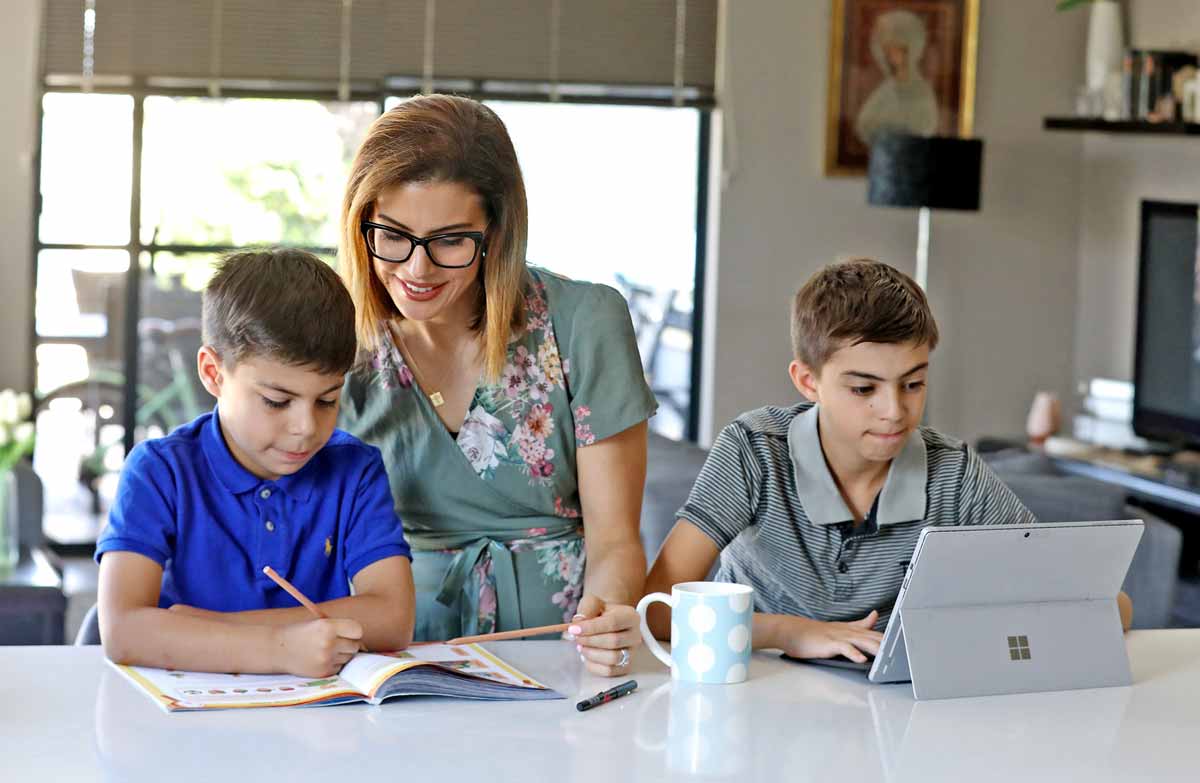As parents, we often put our needs aside as we focus on caring for, raising and supporting our children. For many, parenting during the COVID-19 pandemic has presented a completely new set of challenges.
We are helping our children cope with many big changes and all the different feelings and reactions that come with adjusting to a new sense of normal. These are stressful times for parents too! It is important now, more than ever, to take the time to care for ourselves so we can continue to parent effectively and maintain our mental health and wellbeing.
Connect with your faith
For many Catholics this is a time where we want to connect with God and with our faith community. Try to connect with your church in different ways –participate in live streaming of Mass, engage with your parish’s social media, or access prayer resources online. Create a sacred space at home where you can pray alone or as a family. Keep God present as you spend time reflecting and reassessing priorities.
Make time for yourself
Many of us are spending much more time at home parenting our children while also continuing to have ongoing responsibilities. Much of the personal time that was part of our daily lives – going to the gym, social time with friends, even driving to work – is not available for parents with children learning at home. Find ways to still transition from the different tasks and roles in your life. Purposefully create a space to recharge and de-stress. What this looks like is different for every person. Maybe it is making a space for prayer and reflection, going for a walk alone, listening to music, or taking time to read or zone out after the kids are in bed.

Look after your physical health
In a time of added stress and lack of structure, it can be easy to do things that feel good in the moment but are not helpful or healthy in the longer term. Try to eat properly, make time to be physically active, get a good night’s sleep, and follow official guidelines around the specific hygiene and health practices that are needed right now to keep yourself and others well. Be intentional about your health and do what you can to keep yourself physically well.
Connect with others
Maintain social connections and a sense of community. You may not be able to visit in person so find another way to connect to others email, social media, telephone, video-calls. Continue conversations with family and close friends. Even if they are not physically near, try to speak with or connect with someone each day. Also, consider those friends, neighbours and family who might not be tech savvy and help them to set up apps, video-calls, and other ways of linking in with others.
Connect with your children
Scheduling just 10 minutes of quality play or conversation time with your child each day can lead to a healthier parent-child relationship. Give your child your undivided attention and let them choose and lead the activity. This can boost self-esteem, helps children to know they are important and loved and helps you both to feel calmer and safe.
Monitor your media exposure
With so many people feeling anxious, stressed and uncertain, it can be easy to absorb the concerns and fears of others without realising. Be mindful of the material you are consuming through the media, as well as through, social media. If you are feeling stressed or worried, exposing yourself to a constant stream of distressing media stories is unlikely to be helpful. Try limiting the frequency of checking the news about the pandemic.
Practice self-compassion
Be realistic about what you can do at this time – both at work, and as a parent. Be kind and forgiving to yourself if you cannot meet the usual expectations. This is not the usual situation. You are doing the best you can.
Create structure
Children thrive with a sense of structure and routine and it is helpful for adults too. Some people like to map out their day in a schedule, and others may follow a loose pattern of the day. Even setting a designated space in your home for work, study, or prayer can convey a sense of purpose and normality. Remember that many parts of your day do remain the same. Continue your usual family routines for prayer, meals, and bed times as this consistency can be comforting and reassuring.
Seek professional help if needed
Sometimes we might need help from a mental health professional to get through a tough situation. Further information is available at:
Lifeline 13 11 14

